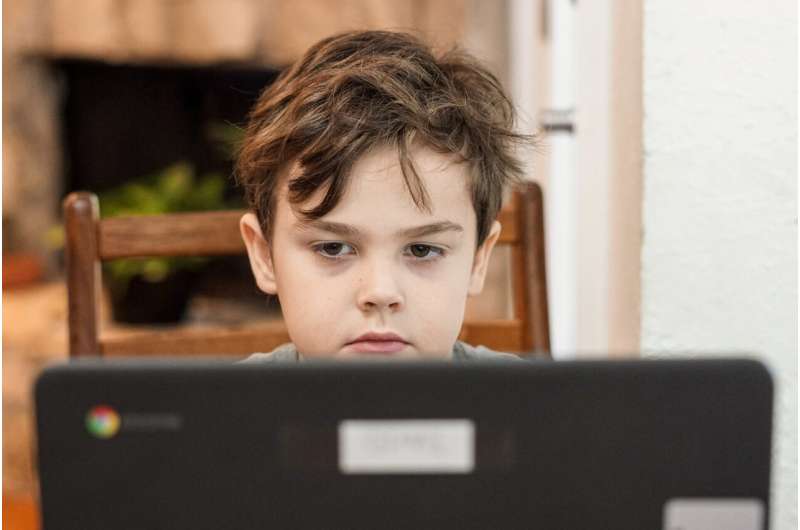This article has been reviewed according to Science X's editorial process and policies. Editors have highlighted the following attributes while ensuring the content's credibility:
fact-checked
peer-reviewed publication
trusted source
proofread
Study finds virtual delivery of SafeCare parenting program holds promise for preventing abuse, neglect

Social distancing orders in the early months of the COVID-19 pandemic forced the evidence-based SafeCare parenting program to transition from in-person delivery in the home to virtual delivery. It also created an opportunity for researchers to assess how virtual delivery affects program outcomes.
In a study that has broad implications for home visitation programs aimed at the prevention of child abuse and neglect, researchers at the Georgia State University School of Public Health found that parents demonstrated positive outcomes regardless of whether they completed the SafeCare program virtually or in person.
A team of researchers led by Distinguished University Professor Shannon Self-Brown, co-director of the National SafeCare Training and Research Center, examined data collected from nearly 3,000 families over a two-year period, as well as survey and focus group data from SafeCare providers. Their findings were recently published in the journal Child Abuse and Neglect.
"At its most basic level, SafeCare works to improve parenting skills that can reduce the risk of child physical abuse and neglect perpetration," Self-Brown said. "So to me, the thing that was most important from this work was that we saw similar levels of skill mastery among parents who received virtual delivery as compared to those who received the program in their home."
International reach
Developed in the 1990s by Distinguished University Professor Emeritus John R. Lutzker of the School of Public Health, SafeCare is a behavioral parenting program that teaches skills in positive parent-child interactions, home safety and child health. It has been delivered to tens of thousands of families in nine countries on four continents through the work of the National SafeCare Training and Research Center, which is housed in the GSU School of Public Health.
Decades of research studies have found that caregivers who participate in SafeCare experience positive impacts on a range of parenting outcomes, such as increased parenting skill, greater use of nonviolent discipline and reductions in parent stress, an issue that was recently highlighted in an August 2024 advisory by the U.S. Surgeon General. One study documented a 26 percent reduction in child maltreatment reports over a five-year period among families with high levels of cumulative risk who completed SafeCare.
Virtual vs. in-home delivery
A growing body of evidence has supported the effectiveness of telehealth and video-based mental and behavioral health services. Programs focused on the prevention of child abuse and neglect have typically favored home visits, however, out of concerns that technology barriers could hinder their use by families with low incomes or who lack reliable internet access. Visiting families in their homes also has the potential to give providers the opportunity to better assess the safety of children who are involved in the child welfare system.
Self-Brown noted that decisions about whether to offer the program in person or virtually are often made at county and state levels, but that the majority of SafeCare delivery has returned to the home-visitation model. She added that providers have continued to deliver the program virtually when an issue arises that prevents a home visit, which she describes as a hybrid delivery model.
"Anything that we can do to make the program fit into families' lives in a more seamless way will allow SafeCare to be more accessible so that parents can complete it, and this will increase the parenting skill outcomes that we care about," she said.
Additional studies are underway to assess outcomes associated with hybrid delivery, and Self-Brown noted that barriers associated with technology access continue to limit the reach of virtual delivery.
"Virtual delivery is certainly working well for some providers with some families," she said. "But we need to understand more nuances about for whom it works well and for whom it may not. We heard a lot of qualitative feedback from providers about parent struggles with technology literacy and accessibility, and how those challenges can make virtual delivery difficult. Until we resolve those challenges, we would never want to move forward with virtual delivery alone."
More information: S. Self-Brown et al, A comparison of virtual versus in-person delivery of SafeCare on parent and implementation outcomes, Child Abuse & Neglect (2024). DOI: 10.1016/j.chiabu.2024.106951



















